-
 Bitcoin
Bitcoin $106,754.6083
1.33% -
 Ethereum
Ethereum $2,625.8249
3.80% -
 Tether USDt
Tether USDt $1.0001
-0.03% -
 XRP
XRP $2.1891
1.67% -
 BNB
BNB $654.5220
0.66% -
 Solana
Solana $156.9428
7.28% -
 USDC
USDC $0.9998
0.00% -
 Dogecoin
Dogecoin $0.1780
1.14% -
 TRON
TRON $0.2706
-0.16% -
 Cardano
Cardano $0.6470
2.77% -
 Hyperliquid
Hyperliquid $44.6467
10.24% -
 Sui
Sui $3.1128
3.86% -
 Bitcoin Cash
Bitcoin Cash $455.7646
3.00% -
 Chainlink
Chainlink $13.6858
4.08% -
 UNUS SED LEO
UNUS SED LEO $9.2682
0.21% -
 Avalanche
Avalanche $19.7433
3.79% -
 Stellar
Stellar $0.2616
1.64% -
 Toncoin
Toncoin $3.0222
2.19% -
 Shiba Inu
Shiba Inu $0.0...01220
1.49% -
 Hedera
Hedera $0.1580
2.75% -
 Litecoin
Litecoin $87.4964
2.29% -
 Polkadot
Polkadot $3.8958
3.05% -
 Ethena USDe
Ethena USDe $1.0000
-0.04% -
 Monero
Monero $317.2263
0.26% -
 Bitget Token
Bitget Token $4.5985
1.68% -
 Dai
Dai $0.9999
0.00% -
 Pepe
Pepe $0.0...01140
2.44% -
 Uniswap
Uniswap $7.6065
5.29% -
 Pi
Pi $0.6042
-2.00% -
 Aave
Aave $289.6343
6.02%
How to migrate to other devices after the Bitcoin wallet address is generated?
Securely migrating your Bitcoin involves transferring it via your private keys to a new wallet on a different device, not just copying the address. Hardware wallets offer the best security, but all types require careful backing up of seed phrases or private keys to prevent loss of funds.
Mar 11, 2025 at 09:39 am
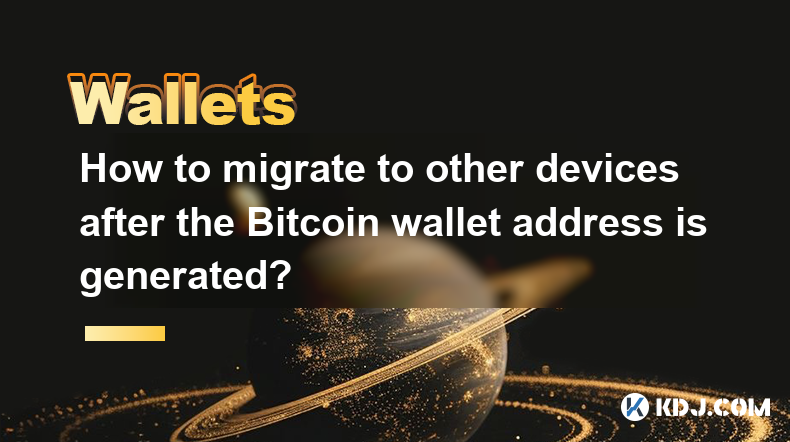
Key Points:
- Bitcoin wallet addresses are not directly transferable. The private keys associated with the address are what control the Bitcoin.
- Migration involves transferring your Bitcoin to a new wallet on a different device.
- Security is paramount; avoid using insecure methods.
- Different wallet types (hardware, software, paper) have varying migration processes.
How to Migrate to Other Devices After the Bitcoin Wallet Address is Generated?
The question of migrating a Bitcoin wallet to a new device is fundamentally about securing and transferring your Bitcoin, not moving the address itself. Your Bitcoin wallet address is simply a public identifier; your private keys are what grant you access to your Bitcoin. Migrating involves transferring your Bitcoin from one wallet (associated with a private key) to a new wallet on another device. The old address remains on the blockchain, but you'll use the new wallet and its associated private key to access your funds.
Understanding the different types of wallets is crucial. Hardware wallets offer the highest level of security, storing your private keys offline on a dedicated device. Software wallets, either desktop or mobile applications, store your keys digitally. Paper wallets are simply printed private keys and addresses. Each type requires a different approach to migration.
Migrating from a Hardware Wallet:
- Backup your seed phrase: This is paramount. Without it, you lose access to your Bitcoin. Write it down securely and store it separately from your hardware wallet.
- Set up your new hardware wallet: Follow the manufacturer's instructions carefully.
- Send your Bitcoin: Use the original hardware wallet to send your Bitcoin to the new hardware wallet's address.
Migrating from a Software Wallet (Desktop or Mobile):
- Backup your wallet: This usually involves exporting your private keys or seed phrase. Different wallets use different methods, so consult your wallet's documentation.
- Install your new wallet: Choose a reputable wallet on your new device.
- Import your keys/seed phrase: Use the exported information to restore your wallet on the new device. Never enter your keys or seed phrase into an untrusted website or application.
- Send your Bitcoin: You might need to send your Bitcoin to a new address generated by your new wallet.
Migrating from a Paper Wallet:
- Securely access your paper wallet: Ensure the paper wallet is undamaged and hasn't been compromised.
- Set up a new wallet: Choose a hardware or software wallet. Hardware wallets are recommended for the highest security.
- Sweep your paper wallet: This involves importing the private key from your paper wallet into your new wallet. This process essentially transfers the Bitcoin from the paper wallet to your new wallet.
Security Considerations:
Remember, your private keys are the most crucial aspect of your Bitcoin security. Never share them with anyone. Use strong passwords, and be wary of phishing scams and malware. Always verify the legitimacy of any website or application before entering your private keys. If possible, use a hardware wallet as they offer the most secure method of storing your Bitcoin.
Choosing the Right Wallet:
Selecting a suitable wallet depends on your technical expertise and security needs. Hardware wallets provide the highest level of security but require a greater understanding of cryptocurrency management. Software wallets offer convenience but require extra caution to avoid security breaches. Paper wallets are simple but risk physical damage or theft. Consider your comfort level and risk tolerance when choosing your wallet.
Understanding the Blockchain:
Your Bitcoin isn't directly "on" your wallet. The Bitcoin exists on the blockchain, and your wallet simply provides access to it via your private keys. When you "migrate," you're essentially transferring control of your Bitcoin to a new wallet, which has a different public address, but the underlying Bitcoin remains on the blockchain.
Frequently Asked Questions:
Q: Can I simply copy my Bitcoin wallet address to a new device?
A: No. The wallet address is only a public identifier. You need to transfer your Bitcoin using your private keys to a new wallet on your new device.
Q: What if I lose my private keys or seed phrase?
A: Without your private keys or seed phrase, you will lose access to your Bitcoin. There is no way to recover them. This highlights the importance of secure backup.
Q: Are there any fees associated with migrating my Bitcoin wallet?
A: Yes, typically network fees (transaction fees) are incurred when sending Bitcoin to a new address. The amount varies depending on network congestion.
Q: Which type of wallet is the most secure?
A: Hardware wallets are generally considered the most secure option, as they keep your private keys offline and protected from malware and hacking attempts.
Q: How often should I back up my wallet?
A: Back up your wallet immediately after setting it up and regularly thereafter, ideally at least once a month, to prevent data loss.
Q: What should I do if I suspect my wallet has been compromised?
A: Immediately secure your private keys and seed phrase, move your Bitcoin to a new wallet, and report any suspicious activity. Change all your passwords associated with your cryptocurrency accounts.
Q: Can I migrate my Bitcoin to a different cryptocurrency?
A: No, Bitcoin is a separate cryptocurrency. You can't directly migrate it to another cryptocurrency like Ethereum or Litecoin. You would need to sell your Bitcoin and then buy the other cryptocurrency.
Disclaimer:info@kdj.com
The information provided is not trading advice. kdj.com does not assume any responsibility for any investments made based on the information provided in this article. Cryptocurrencies are highly volatile and it is highly recommended that you invest with caution after thorough research!
If you believe that the content used on this website infringes your copyright, please contact us immediately (info@kdj.com) and we will delete it promptly.
- 2025-W Uncirculated American Gold Eagle and Dr. Vera Rubin Quarter Mark New Products
- 2025-06-13 06:25:13
- Ruvi AI (RVU) Leverages Blockchain and Artificial Intelligence to Disrupt Marketing, Entertainment, and Finance
- 2025-06-13 07:05:12
- H100 Group AB Raises 101 Million SEK (Approximately $10.6 Million) to Bolster Bitcoin Reserves
- 2025-06-13 06:25:13
- Galaxy Digital CEO Mike Novogratz Says Bitcoin Will Replace Gold and Go to $1,000,000
- 2025-06-13 06:45:13
- Trust Wallet Token (TWT) Price Drops 5.7% as RWA Integration Plans Ignite Excitement
- 2025-06-13 06:45:13
- Ethereum (ETH) Is in the Second Phase of a Three-Stage Market Cycle
- 2025-06-13 07:25:13
Related knowledge
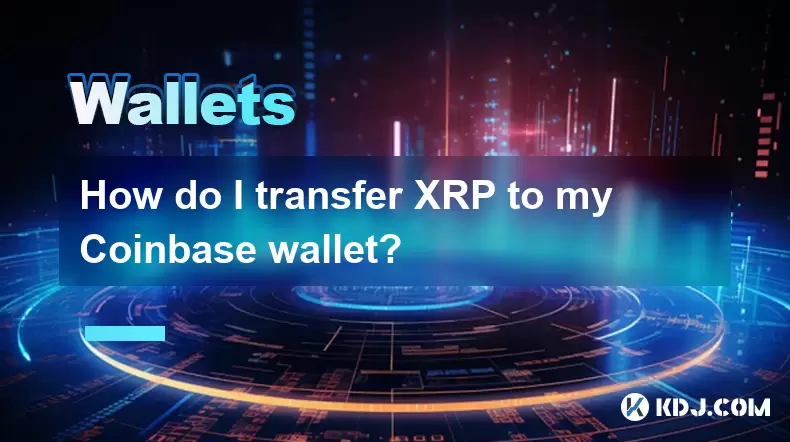
How do I transfer XRP to my Coinbase wallet?
Jun 16,2025 at 04:57pm
Understanding the Basics of XRP and Coinbase CompatibilityBefore initiating any transfer, it’s essential to confirm whether Coinbase supports XRP. As of recent updates, Coinbase has resumed offering XRP trading services on its platform after a period of uncertainty due to legal issues involving Ripple Labs. However, availability may vary depending on yo...

How do I deposit BNB into my Trust Wallet?
Jun 15,2025 at 03:56pm
Understanding BNB and Trust Wallet CompatibilityBefore initiating a deposit, it’s crucial to understand what BNB is and how it interacts with Trust Wallet. BNB (Binance Coin) is a utility token created by the Binance exchange. It can be used for paying transaction fees, participating in token sales, and more. Trust Wallet, on the other hand, is a mobile...
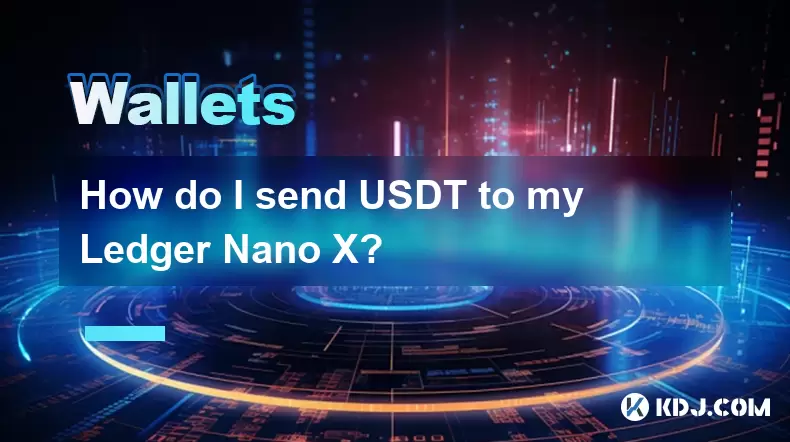
How do I send USDT to my Ledger Nano X?
Jun 15,2025 at 06:28am
What is USDT and Why Use Ledger Nano X?USDT, also known as Tether, is one of the most widely used stablecoins in the cryptocurrency ecosystem. It operates on various blockchain networks such as Ethereum (ERC-20), Tron (TRC-20), and others, offering users a digital asset pegged 1:1 to the US dollar. When it comes to storing USDT securely, hardware wallet...
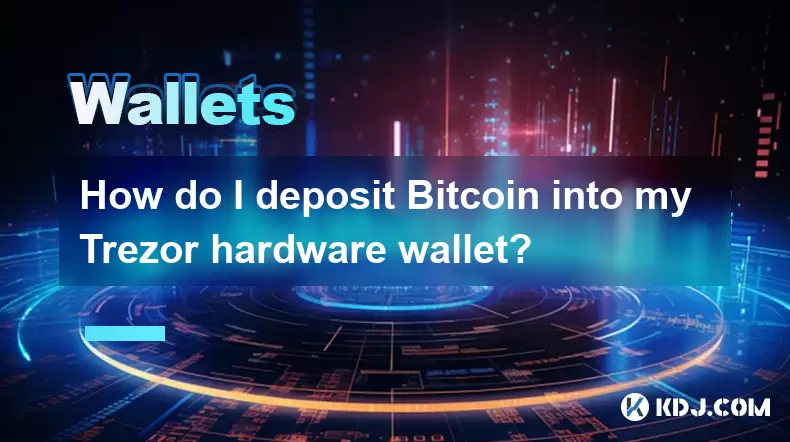
How do I deposit Bitcoin into my Trezor hardware wallet?
Jun 14,2025 at 12:29pm
What is a Trezor Hardware Wallet?A Trezor hardware wallet is a secure device designed to store cryptocurrencies offline, protecting them from online threats. Unlike software wallets, which are vulnerable to hacking and malware, Trezor stores private keys on the physical device itself. This ensures that transactions can only be approved by physically int...
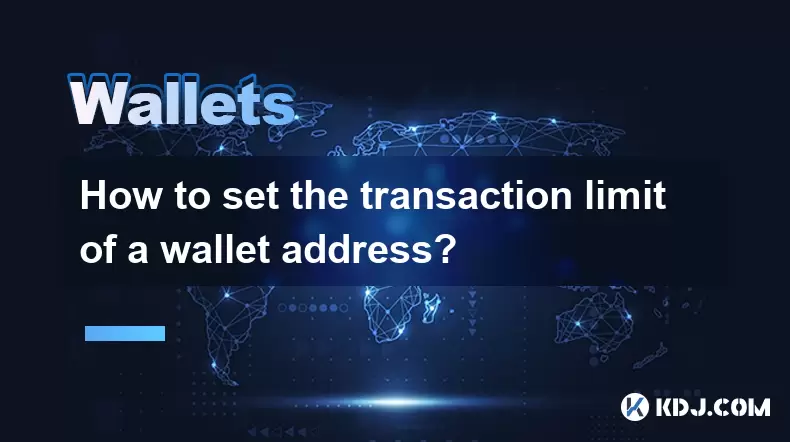
How to set the transaction limit of a wallet address?
Jun 16,2025 at 04:08am
Understanding the Concept of Transaction Limits in Cryptocurrency WalletsIn the cryptocurrency ecosystem, transaction limits refer to predefined restrictions placed on the amount of digital assets that can be sent or received by a wallet address within a specified timeframe. These limits are typically enforced by platforms such as exchanges, custodial w...
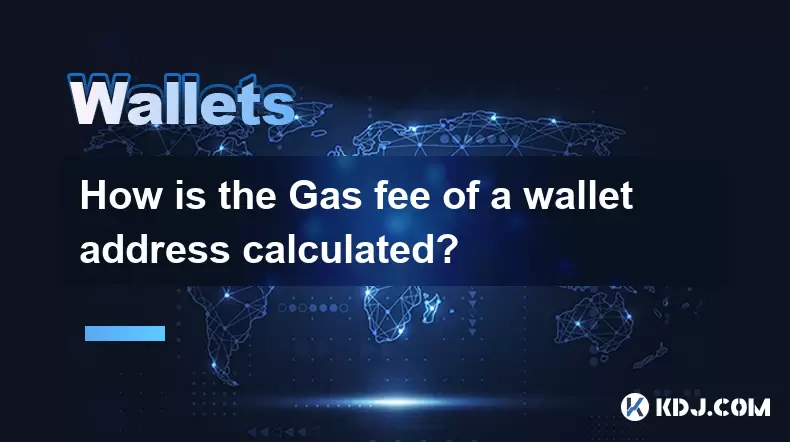
How is the Gas fee of a wallet address calculated?
Jun 14,2025 at 07:57pm
Understanding the Basics of Gas Fees in Blockchain TransactionsIn the cryptocurrency ecosystem, particularly within Ethereum-based networks, a Gas fee is an essential component of executing transactions or smart contract operations. The Gas fee serves as compensation for miners or validators who process and confirm transactions on the blockchain. It is ...

How do I transfer XRP to my Coinbase wallet?
Jun 16,2025 at 04:57pm
Understanding the Basics of XRP and Coinbase CompatibilityBefore initiating any transfer, it’s essential to confirm whether Coinbase supports XRP. As of recent updates, Coinbase has resumed offering XRP trading services on its platform after a period of uncertainty due to legal issues involving Ripple Labs. However, availability may vary depending on yo...

How do I deposit BNB into my Trust Wallet?
Jun 15,2025 at 03:56pm
Understanding BNB and Trust Wallet CompatibilityBefore initiating a deposit, it’s crucial to understand what BNB is and how it interacts with Trust Wallet. BNB (Binance Coin) is a utility token created by the Binance exchange. It can be used for paying transaction fees, participating in token sales, and more. Trust Wallet, on the other hand, is a mobile...

How do I send USDT to my Ledger Nano X?
Jun 15,2025 at 06:28am
What is USDT and Why Use Ledger Nano X?USDT, also known as Tether, is one of the most widely used stablecoins in the cryptocurrency ecosystem. It operates on various blockchain networks such as Ethereum (ERC-20), Tron (TRC-20), and others, offering users a digital asset pegged 1:1 to the US dollar. When it comes to storing USDT securely, hardware wallet...

How do I deposit Bitcoin into my Trezor hardware wallet?
Jun 14,2025 at 12:29pm
What is a Trezor Hardware Wallet?A Trezor hardware wallet is a secure device designed to store cryptocurrencies offline, protecting them from online threats. Unlike software wallets, which are vulnerable to hacking and malware, Trezor stores private keys on the physical device itself. This ensures that transactions can only be approved by physically int...

How to set the transaction limit of a wallet address?
Jun 16,2025 at 04:08am
Understanding the Concept of Transaction Limits in Cryptocurrency WalletsIn the cryptocurrency ecosystem, transaction limits refer to predefined restrictions placed on the amount of digital assets that can be sent or received by a wallet address within a specified timeframe. These limits are typically enforced by platforms such as exchanges, custodial w...

How is the Gas fee of a wallet address calculated?
Jun 14,2025 at 07:57pm
Understanding the Basics of Gas Fees in Blockchain TransactionsIn the cryptocurrency ecosystem, particularly within Ethereum-based networks, a Gas fee is an essential component of executing transactions or smart contract operations. The Gas fee serves as compensation for miners or validators who process and confirm transactions on the blockchain. It is ...
See all articles

























































































